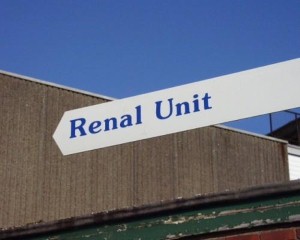
| Renal disease better treated with intensive kidney dialysis - Mediplacements |
 |
Renal disease better treated with intensive kidney dialysis
Wednesday 25th April 2012 A series of intensive kidney dialysis at home could improve survival rates for patients suffering from end-stage renal disease. The condition, also referred to as chronic kidney disease, is normally treated by those in hospital doctor jobs where the patient has to visit a clinic at a set time and date for dialysis to help combat the disease. However, a team of researchers at the Lawson Health Research Institute believe that having an intensive course of treatment within the home can significantly improve a patient's a survival rates compared to the more conventional method. During a series of studies Dr Gihad Nesrallah, the lead author of the report, conducted tests both at home and at clinics. It was found that those who had the more intensive range of dialysis at home showed better signs of recovery, improved blood pressure results and biomedical test values than those who had undergone the more conventional treatment. Dr Nesrallah said: "Strategies to improve survival for persons with end-stage renal disease are needed, and more intensive dialysis represents one of the more promising options that had emerged in the last two decades. We think that patients may wish to seriously consider intensive hemodialysis where possible." Chronic kidney disease is relatively common in the UK with the NHS stating that one in five men and one in four women aged between 65 and 74 have some form of the condition. As it worsens the need for dialysis is imperative and the normal clinical procedures are what many patients experience. While the conventional method is conducted in less than five hours, over three days, the intensive home care procedure, championed by the Lawson research team will mean that sufferers are subject to eight hours of treatment three to seven nights a week and the team concluded that patients will stand a better chance of surviving via this treatment. by Mathew Horton Related articles Majority of NHS diabetes spend "avoidable" Majority of NHS diabetes spend "avoidable"
The NHS has been criticised for being "wasteful" with its spending on treating diabetes, according to a new report. ... Thursday 26th April 2012  Stafford Hospital launches bowel cancer pilot... Stafford Hospital launches bowel cancer pilot...
Stafford Hospital has become the first health centre in the UK to employ a Macmillan Clinical Nurse Specialist (CNS) to highlight... Wednesday 11th April 2012  Differing blood pressure in each arm could be... Differing blood pressure in each arm could be...
People that have different rates of blood pressure in their right and left arm could be at a higher risk of death. A report by... Monday 26th March 2012 |